Clemene is from a village back in the mountains behind Cazale. It takes about 8-9 hours to walk from her home village down to Cazale. Her mother and father were not married and didn’t live together. Her mother had 7 other kids besides her (3 boys & 5 girls). On her father’s side, she has one sister and “too many brother to count.”
Her mother couldn’t afford to care for all the children, so she sent Clemene down to work at someone’s house when she was 9 years old. She lived there for many years, but it didn’t feel like home. When she was 16 or 17, another lady (who had also worked at the same house as a child) took her from the house and had her live with her.
In 2007, this lady helped Clemene get a temporary job working for RHFH. She cared for two twin girls that were in the process of being adopted out to the states. In 2008, she cared for a boy and girl that were going to the states after there adoption was final. Once these children went to their forever families, her jobs were over, but we noticed her strong work ethic and willingness to do any job that was needed.
On November 13, 2010, she started working with Lori helping to care for cholera patients on the night shift (6pm-6am). She was one of the first ones to agree to work, even though many refused and were very scared that they would die of cholera. She is the only one still working from that original first group of cholera helpers. After she was educated, she wasn’t scared to care for those with cholera. She watched Lori closely to know how to stay clean and not get infected. She isn’t very literate, but she has a sharp mind and is a quick learner. Not afraid to ask questions and direct others, she soon started training new employees and reassuring them that they wouldn’t get sick if they followed good hygiene. When cholera patients are low and there isn’t much work, she works for others in the ICU/RC when they are sick or if there is a special child or adult that needs one-on-one care. She also helps out cleaning the guesthouse when there are teams or others are busy.
With her income, she was able to rent her own house and moved her mother down to live with her. She lives in between the cholera center and the clinic (maybe about 10-15 from either place). She is 24 years old and doesn’t have any kids yet. She has lots of problems with heartburn and an ulcer, but finds that the medication in the clinic helps her with this.
She is happy to work in the CTC (cholera treatment center) helping those that are sick with cholera and other diarrhea illnesses. She gets her greatest satisfaction in the work from seeing the quick improvements to the patient’s health from her actions. Education is also a joy for her.
She likes to sit with the patients in the evenings. She listens to how they live and how they think they got cholera and tries to offer them suggestions in ways to prevent cholera and other microbe transmission. She pushes them to drink as much oral rehydration drink as they can. Even though it doesn’t really taste that great, she knows that it is good for them. She isn’t afraid to wake them up in the night to sip on it, especially the children. When a patient first arrives, she tries to orient them and their family as the nurse gets the IV in, gives meds, and does paperwork. She is happy to help the families because they are often scared and nervous. There has even been a few pregnant ladies that went into labor because of the severe dehydration that comes with cholera. She did her best to help us deliver these precious little ones, often hold flashlights so that we could see.
There are a few things that she doesn’t like about the work. During the dry season, she doesn’t work as much because there are not many patients. Her amt of work days and pay fluctuates. It’s hard to plan things out when your income isn’t steady. She also thinks that it is hard to work at night with limited lighting. She likes the Coleman lanterns, but the rechargeable batteries only last for 6-8 months. She would love it if a few people could buy and send in a few. It would make her job so much easier.
She hates cholera, but knows that it gives her a job. Clemene thinks that most people that get sick with cholera tend to be poor. They have little access to clean water and are limited on the ways that they keep their homes hygienic. This group is more at risk. She has seen several places in the mountains that don’t have much water at all. In these areas, animals and people drink out of the same water pits. She thinks more education will help, but there is also a great need to create more access to clean, potable water (drilling wells, capping mountain sources/wells, building reservoirs to catch and store rain water). She is thankful to all those that help with donations, send items, come to volunteer, and pray for the cholera patients.


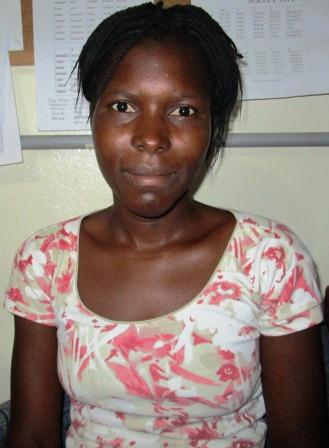
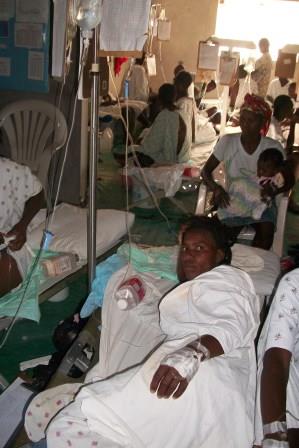
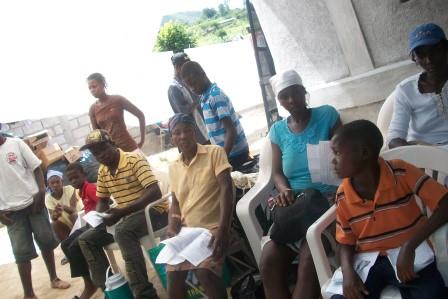
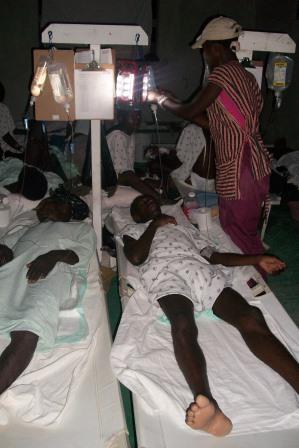
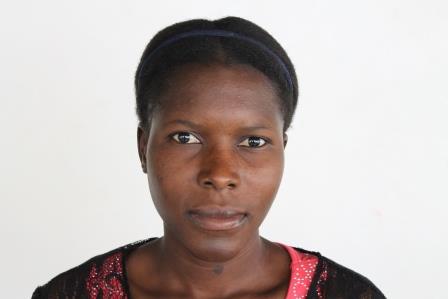
Comments(2)
Susan McAnelly says
June 9, 2014 at 10:28 pmWhich would you prefer the money for the batteries or the actual batteries. If you want the batteries what address would I send them to.
Thanks.
Lori says
June 10, 2014 at 9:53 amRight now, it would be better if you bought them and shipped them to Debbie W. I’ll email you the address. Thanks!